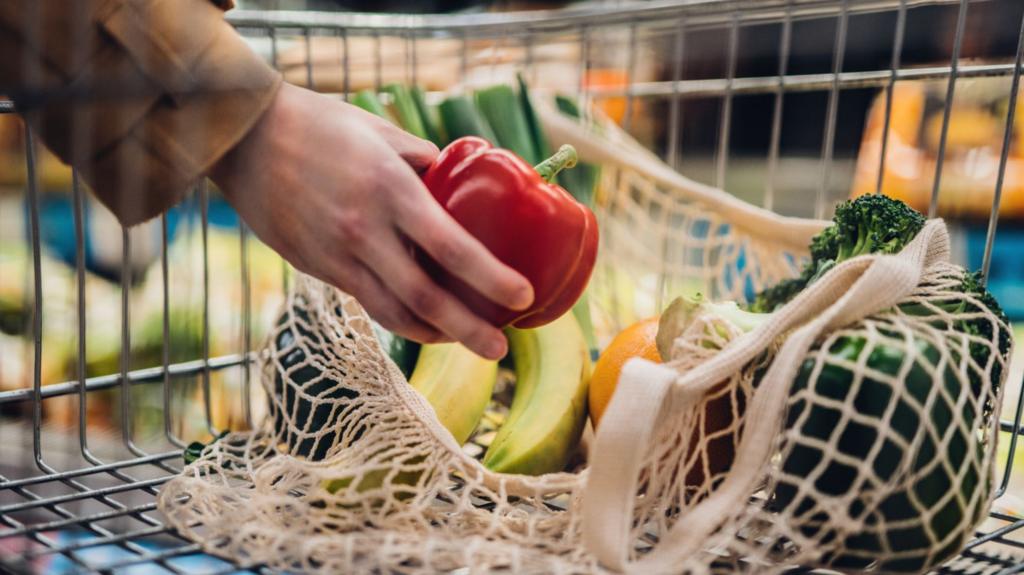New government plans announced Sunday aim to make it easier for consumers to purchase healthy food options.
Supermarkets and food manufacturers in England are set to collaborate with the government to address obesity rates by encouraging healthier shopping habits.
Government ministers have stated that the specific methods will be at the discretion of food retailers. Potential strategies include promotions on healthy foods, incentivizing healthy choices through loyalty programs, and modifying store layouts.
However, the shadow work and pensions secretary criticized the plans, arguing it is not the government’s role to dictate consumer purchases, labeling mandatory targets as “nanny state” policies.
“They’ve had 14 years in opposition to think about what they wanted to do about the NHS,” MP Helen Whately told Sky News’ Sunday Morning With Trevor Phillips, adding: “They’ve had a year in government, and the number one thing in it seems to be hide the crisps”.
“Telling people what to buy, I think, is not up to government. I believe in personal responsibility” she said.
The plans may also involve reformulating products to improve their nutritional value.
The initiative aims to improve access to healthy eating options for consumers and alleviate pressure on the National Health Service (NHS).
A key component of the policy will require major food retailers to report on sales of healthy food items to enhance accountability. Targets will be established in collaboration with the industry.
These measures are part of a broader effort to improve national health, to be included in the NHS England’s upcoming 10-year plan.
Health Secretary Wes Streeting described the new strategy as “radically different” from the previous government’s “nanny stated approach of dictating to people the prices, the marketing” and instead “working with supermarkets” to encourage healthier eating.
Speaking on the BBC’s Sunday with Laura Kuenssberg programme with host Victoria Derbyshire, Streeting added: “If we reduced our calorie intake by just fifty calories a day then we can get well over 300,000 children out of obesity, 2 million adults”.
The forthcoming report will reveal that over one in five children are living with obesity by the time they leave primary school, with this figure rising to nearly one in three in the most deprived areas, costing the NHS £11 billion annually.
A recent report found that a basket of healthy food costs more than double that of less healthy options.
The Food Foundation reported that 1,000 calories of healthy food such as fruit and veg costs £8.80, compared to £4.30 for the equivalent amount of less healthy food, such as ready meals and processed meats.
Andrew Opie of the British Retail Consortium said the news is “really positive” but said “all food businesses” must work together to drive down obesity.
“Engaging all food businesses makes a difference,” Opie told the BBC.
“It can’t just be about supermarkets- we consume about a quarter of our calories outside the home, so unless we get all supermarkets, food retailers, and restaurants on board, we won’t move the dial on obesity.”
Opie said that he agreed with the government’s flexible approach on the standards, as businesses have “a lot of insights and data” into how we shop for food and what would be best for their customers.
Katharine Jenner, director of the Obesity Health Alliance said: “The government has rightly identified the root cause of obesity-related ill health: a food system that makes healthy eating difficult.”
She said it was encouraging to see the government putting the spotlight on businesses “rather than placing the burden on individuals who are already struggling to get by.”
Alongside the new partnership, the government said it would also:
It is hoped the new guidance will reduce people’s sugar and calorie intake overall.
The government cited research showing that cutting just 50 calories a day would lift 340,000 children and two million adults out of obesity.
If everyone who is overweight reduced their calorie intake by just 216 calories a day, which is equivalent to a single bottle of fizzy drink, obesity would be halved, researchers said.
This is not the first time the government has sought voluntary partnerships with industry. Over the last 20 years there has been numerous food reformulation programmes aimed at reducing salt, sugar and calories in certain foods.
Success has been mixed with a push to reduce sugar in certain foods by 20% between 2015 and 2020 falling well short.
Sarah Woolnough, from The King’s Fund think tank, said while welcome, the impact of the scheme may be limited.
“A lot of less healthy food and drink is purchased from local convenience shops and takeaways.
“The stark fact remains that unhealthy food is far cheaper and more readily available and so unless this change is part of a wider, comprehensive strategy it will not be enough.”
Additional reporting by Rachel Muller-Heyndyk
Alistair Hawken says he was turned down by his bank and rejected for Innovate UK funding.
The new pilot teaches children as young as five how to check UV levels and apply sunscreen.
One month on from the disposable vape ban, one mum says it has had little impact on her children’s nicotine consumption.
A defibrillator and bleed kit are installed in a disused phone box as part of a youth project.
Ministers set to abolish bodies which advocate on behalf of patients and support whistleblowers.

